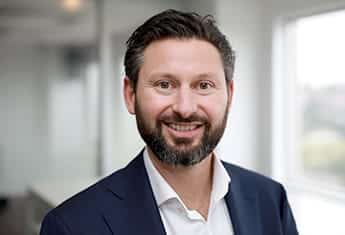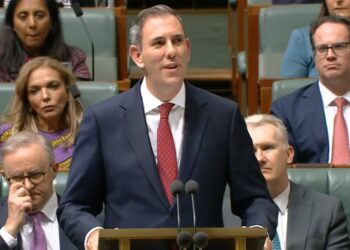The director of Divergent Wealth, Angelo Baronessa, is a financial adviser specialising in working with clients from the LGBTQIA+ community.
Speaking with ifa, he explained that while he hadn’t initially set out to specialise with the LGBTQIA+ community when joining the advice profession in 2016, he found that over time, his customers were increasingly falling within that demographic.
“It was all just the same community of people that didn’t have somewhere that they could go, where they felt comfortable, or where they could freely be themselves,” Baronessa said.
However, he said he doesn’t restrict himself to only his specialist clients, keeping himself open for other opportunities.
“Any good adviser will tell you, don’t have all your eggs in one basket. Diversity is key. What I would say is, if we exclude someone, it’s kind of the opposite of what I’m trying to achieve here,” Baronessa said.
He said he has been actively working to create an environment where clients feel they can be their “true and honest self”, providing a safe space for those who may have previously felt they had to withhold information due to a feeling of judgement or a lack of trust.
“They just want to make sure that they protected themselves, but in doing that, they can find that they’re not exactly giving their full, honest situation to an adviser, and therefore it sort of hinders, or can sort of create a bit of a roadblock in that relationship,” Baronessa said.
Further highlighting the need for creating safe environments for all clients, Baronessa said that, due to the deeply personal information advisers need from their clients in order to do their job, those who feel uncomfortable being honest with their adviser likely won’t reap the full benefits of financial advice.
“I know more than your doctor, because I have to look at not just your current health but your prior health and what’s going forward, what medications you’re on. So, that’s the insurance piece,” he said.
“I have to know about your personal situation. So, your income, what your accountant knows. I have to know about what your goals are for your estate planning. So, your estate lawyer, I have to know what they know.
“I have to know all these different things. I’m kind of that centre of everything, of all those other aspects that interact with each other. So, I have to know quite a bit of detail about a person, so you want to make sure that they’re telling you the honest truth, and if they’re not comfortable, they’re not going to share that with you.
“That’s where it’s really important, it’s really powerful, because if people can’t explain that to you, or they hold back, it all falls down.”
When it comes to working with LGBTQIA+ clients, he said the “most important thing is comfort”.
Important considerations for this demographic
Baronessa said that one of the considerations advisers need to be mindful of when working with LGBTQIA+ clients is complex family dynamics. However, it is important to note that these circumstances are not exclusive to this community and will likely arise when working with a wide range of clients.
“I’ve got a couple of clients where they were previously married – in a heterosexual couple relationship – and later in life they have come out and they’re divorced, and they’ve probably still got a good relationship with their ex-spouse, but that’s not every case, but it means that they’ve now got a blended family,” he said.
“Or it might be that they have a difficult relationship with their children or grandchildren, or they don’t have a relationship with them. So, how do you manage that? Or what do you do in that aspect?
“Because maybe they’re trying to produce a portfolio for themselves, a wealth portfolio, but who do they leave it to at the end of the day? And how do we manage that? That’s one aspect of the complications that we have to consider.”
He said that advisers need to consider how clients without children might want their assets to go upon their death, whether that be to other relatives or as a donation to a group of their choosing.
“Maybe they don’t want kids, and the majority may fall within that basket,” Baronessa said.
“Then there’s also the other side of the equation where I’m seeing it more and more common where younger heterosexual couples don’t want kids, and therefore it kind of fits in nicely with that aspect of same sex couples who don’t want kids either, and so how do you manage that?
“So, it starts to change a conversation around generational wealth transfer to what do you want to do? And it opened up this huge conversation that I haven’t typically had in the past when I’ve not dealt within, or worked within, this community.”
Baronessa recalled marching for the first time in the Midsumma Pride March in Melbourne earlier this year with GLOBE – an LGBTQIA+ networking organisation of which he is the small business membership director – and seeing clients of his.
He said the experience was “surreal” and solidified for him the importance of being “amongst your own community and then working with them”.
“I’m a presence that people can see. I’m not just someone who’s trying to monetise off of the community. I’m part of the community. So, I understand what the community concerns are. I understand what people go through,” Baronessa said.
Should other advisers be specialising?
While the profession has seen a rise in specialisation over recent years, Baronessa asserted that generalists are still a key part of the ecosystem.
“I always think of it like seeing a doctor. So, you’ll go to your GP because they’re general in nature, and they can deal with a whole range of things. Same in financial planning. So, there’s always going to be a need for generalist advisers,” he said.
“I know it’s probably hard to know what’s going to happen in the distant future, but there’s always going to be a need for generalists and specialists.
“Generalists and specialists will always have a role to play.”
Reflecting on his own experiences, Baronessa said specialising has been highly beneficial.
“I don’t see any drawbacks, because I do what I love. The benefit is I do what I love. I have amazing clients; I have wonderful conversations. People approach me for advice because they know me for what I do,” he said.
“I’m part of a networking organisation in Melbourne but also a similar one in Sydney, and I’m on the radio nationally once a month talking about financial advice for the community, for my community. So, the benefit is, I get to do all of that, and I love it.”



